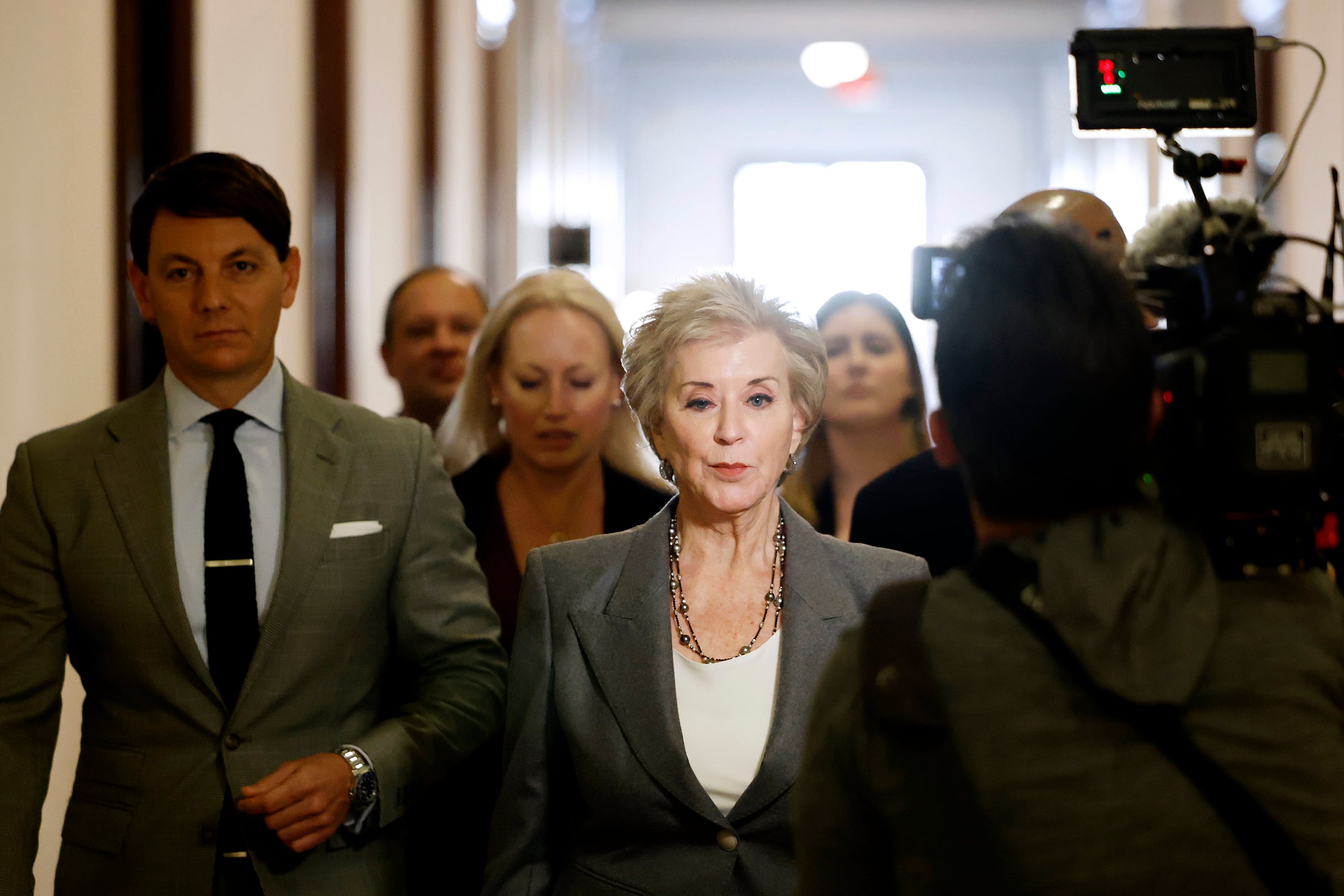Sign up for Chalkbeat’s free weekly newsletter to keep up with how education is changing across the U.S.
Linda McMahon, the nominee for U.S. education secretary, holds dozens of municipal bonds that are funding construction and other projects at school districts and public colleges and universities across the country, her ethics disclosure forms show.
Based on her holdings, it’s likely McMahon earns at least $900,000 a year in interest payments from investing in those public education-related bonds in two dozen states, a Chalkbeat analysis found. That’s based on the minimum value of the bonds and assumes a conservative 2.5% yield on the investments.
McMahon, a former professional wrestling executive, ran the Small Business Administration during President Donald Trump’s first term, but has little education experience.
Her confirmation hearing is scheduled for Thursday before the Senate education committee. It’s likely to become a referendum of sorts on Trump’s plans to eliminate or significantly reduce the Department of Education. Trump, who is pushing to expand private school choice, has said he wants McMahon to put herself out of a job.
A representative for McMahon could not be reached for comment. But McMahon has said she would divest from 78 bonds that fund public education projects, the ethics forms show, including 64 bonds issued to K-12 school districts or agencies.
McMahon has a sizable investment portfolio, said Justin Marlowe, a University of Chicago research professor who directs the Center for Municipal Finance who reviewed the assets on her disclosure forms. She probably hired someone else to manage it.
It’s also likely McMahon did not pick these specific school districts to invest in, and she may not have known she held these particular bonds before filing her disclosure, said Ruth Winecoff, an assistant professor at Rutgers University–New Brunswick who studies public finance. It’s possible her financial adviser invested in the bonds through a mutual or money market fund.
McMahon invested in municipal bonds issued to some of the largest school districts in the country, including Houston and Palm Beach County, as well as smaller districts that serve no more than 1,500 students. Often the bonds are to repair school buildings, build new ones, or pay off old bond debt.
In Denver Public Schools, for example, the bonds McMahon invested in were to help the district replace leaking roofs, install air conditioning in schools that didn’t have it, and buy new furniture. The bonds also helped establish an early childhood center, upgrade science labs, improve security at school entryways, and buy more computers so kids could take them home to do their assignments.
In many states, schools have little access to public funding to repair aging school buildings or build new facilities. So schools often borrow money to take care of those needs.
McMahon currently serves as chair of the America First Policy Institute, a pro-Trump think tank that promotes school choice, among other issues. The disclosure forms indicate she plans to resign from that position, as well as from the board of Sacred Heart University, a private Catholic college, if confirmed by the Senate.
It’s common for wealthy investors like McMahon, who is a billionaire, to hold these kinds of municipal bonds, finance experts say.
For one, investors do not have to pay federal income tax on the interest they earn. And in some cases, they don’t have to pay state or local income tax on the interest they earn, either.
“It’s very popular with high net-worth individuals who are looking to shield income from taxation,” Marlowe said. “There’s more municipal bonds held by people in the top tax brackets than there are in the lower tax brackets. She’s clearly in that category.”
Municipal bonds are also considered a safe investment — it’s unlikely local governments would fail to pay investors back — and they can help balance out the risks in an overall portfolio, Winecoff said.
You can look up whether McMahon invested in a bond for your local school district or college below:
Kalyn Belsha is a senior national education reporter based in Chicago. Contact her at kbelsha@chalkbeat.org.






